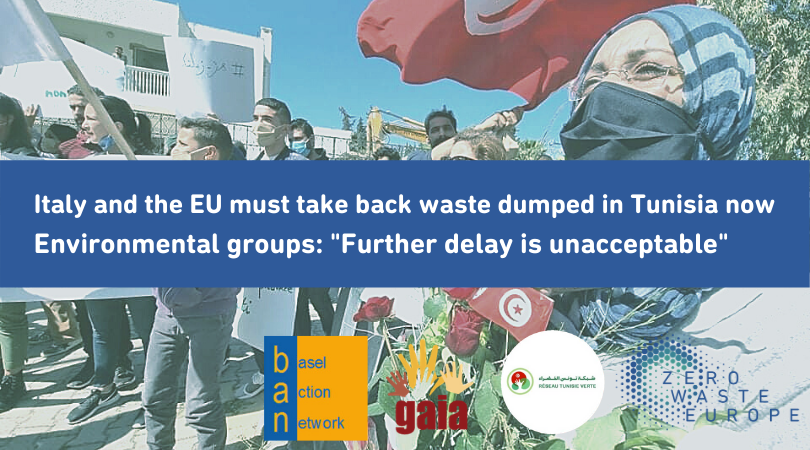More than 200 containers of household refuse were imported to Tunisia by Italian private company
Environmentalists and civil society activists in Tunisia have hailed the return of waste illegally imported from Italy after a public campaign that gained momentum nationwide over the past year.
A private company brought in the household rubbish under the false claim that it was plastic scrap that would be recycled in accordance with environmental regulations.
“We just want to draw the public attention to the fact that credit should all go to investigative Tunisian journalists and an effective campaign by MP Majdi Karbai, who discovered the harmful cargo and campaigned to send back the rubbish to its country of origin,” Radia Al Wihishi, head of the non-governmental organisation Tunisie Ecologie, told The National.
Tunisia’s Ministry of Environment said 213 containers of household waste were loaded on to a ship in the port city of Sousse on Saturday before it set sail for the Italian harbour of Salerno.
The ship is owned by the Turkish container group Arkas and rented by Italy, which signed an agreement with Tunisia last week to take back the rubbish.
“If it had not been discovered, this waste could have been burnt and emitted methane into the air, a greenhouse gas that is far more polluting than carbon dioxide,” said Mrs Al Wihishi.
The Ministry of Environment said in a statement on its Facebook page that the return of the waste was part of the North African country’s fight against corruption and a waste management strategy that helped address the crisis of global warming.
It said legal action has been already taken against government and company officials suspected to have taken part in the scandal.
Investigations revealed that the company signed a deal worth €5 million ($5.66m) to dispose of up to 120,000 tonnes of waste.
Some 26 people are being prosecuted over their alleged involvement in what is described in local media as the “Italian waste scandal”.
They include former environment minister Mustapha Aroui, who has been arrested. The manager of the import firm is still at large.
The arrests followed months of a judicial investigation that started in November 2020 after Tunisian investigative journalist Hamdi Ben Salah posted on his Facebook page what he described as evidence of hazardous waste imported from Italy and stored at the Sousse port.
He presented the authorities with documents and footage he obtained from a whistle-blower at the port.
Landfilling Tunisia
The investigation was spurred by a campaign championed by Mr Karbai, who represented Tunisians in Italy in parliament before it was suspended by President Kais Saied last July.
Mr Saied also sacked the government in a move seen by his critics as power grab that undermined attempts to establish democracy and rule of law after the toppling of autocrat Zine El Abidine Ben Ali in 2011.
Mr Karbai accused Italy of turning his country into a landfill site by exporting its household waste. Importing such waste is barred under Tunisian law.
He said European countries were seeking the cheapest option to get rid of their household waste by turning developing countries like Tunisia into dumping grounds.
His campaign gained the support of civil society and environmentalists.
Mr Karbai was not available to comment for this report. Last week, he shared on his public Facebook page a copy of the agreement signed by the Tunisian government and the Campania region in southern Italy, saying: “This is a victory for the people of our beloved Tunisia.”
READ ALSO ; Iran: MPs Put Forth Conditions for Reviving Nuclear Deal
In an interview with the Tunisian Shams radio channel last week, Mr Karbai ruled out the Tunisian government suing Italy for the environmental damage caused by the burning of some of the waste.
“If the Tunisian government had wanted to sue Italy, it could have done so long time ago,” he said.
The case highlights the environmental hazard posed to developing countries — mainly in Africa — from accepting waste that cannot be recycled.
Environmentalists say such imported rubbish can include dangerous liquids and medical waste and cause environmental and health issues as toxic gases are released in the air.
Tunisia is trying to clean up and formalise its waste disposal system as part of its strategy to reduce its greenhouse emissions and carbon footprint by 13 per cent by 2030.













